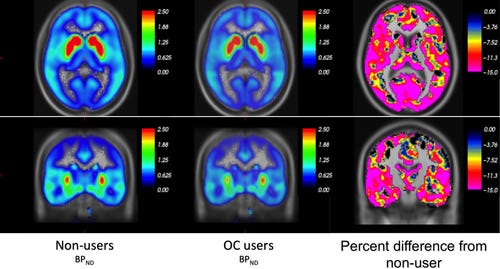All over the world, oral contraceptives are a quintessential part of modern women's lives. Such as career benefits and reducing women's abortions and unwanted pregnancies. But how does the tiny pill changes what's happening in our body?
Not all women react the same way. If birth control works for you, then fantastic. But for some of the others, we would NEVER have thought that hormonal birth control was part of the problem.
Women are reporting higher rates of depression than ever before. Female attempted teen suicides are at the highest they have ever been.
Women’s health is vital to a flourishing society, shouldn’t we question every variable?
"Women who start birth control before 20 are more vulnerable to long-lasting major depressive disorder."
In 2016 a long-term Danish study revealed that women who used hormonal birth control were 23% more likely to be diagnosed with depression later. These women were at a higher risk of developing a mood disorder. Many doctors said that the study showed association but not causation.
A pharmacist described her view on American health care.
"We organize birth control pills, antidepressants, and thyroid medication, all on the same shelf."
As a scientist, my follow up questions are:
How do Oral Contraceptives increase the risk of depressive disorders?
How can it worsen symptoms in women already suffering from depression?
Oral Contraceptives suppresses the hypothalamic-pituitary-gonadal hormone axis. (HPA axis). What are the other implications?
Another study out of Nature in 2017 demonstrates a link between oral contraceptives (OCs) and stress.
The study examined 233 pre-menopausal women, ages 20-54. Observing the molecular impact of OC's on our genes, cortisol, metabolism, and did MRI's of their brains.
The evidence provided was clear. The study showed that women who took OC's had increased cortisol in the blood.
Here is how high cortisol can impact your health:
Significantly elevated cortisol levels are a marker of permanent stress. Your body is in fight mode the whole time. Cortisol sends signals to our brain and body, which are required for fight or flight. But with really high cortisol levels, it's always on. Our body and brain are constantly in "fight" mode, which gets tiring. After a while, it could lead to mood deterioration.
Usually, people think it's due to a "stressful job" or events in their life. But the artificial hormones in birth control can throw women's HPA-axis off balance. Since your body is stressed because it thinks it shouldn't ovulate. Working against us and suppressing our natural hormones, causes a rise in cortisol. Women on OC's almost always have high cortisol numbers.
- High cortisol is linked with depressive symptoms
- Feeling of fear, panic, impaired memory, and a suppressed immune system,
-Increased fat storage
- After a while (years), we can be desensitized, less in tune with how we are feeling, other than tired
- Women taking oral contraceptives had a smaller hippocampus
- Similarly, antidepressants affect the lipids in the brain
The elevated cortisol levels changed the lipid signals that are in the brain. MRI's of women on OC's had smaller hippocampal volume. Why are they smaller? Could a smaller hippocampus lead to changes in mood and memory?
They looked at the expression of genes that are high in stress related disorders. For example, people who were abused as children usually had increased FKBP5.
Women on oral contraceptives who had higher cortisol levels had increased FKBP5.
While this study will never claim that cortisol is the cause of depression, it is interesting to see biological consequences to our body after OC use.
Doctors will claim then that it isn't "proven." But could high cortisol caused by OC increase someone's risk of becoming depressed later? (Every person different, there is a mix of factors to consider) But could it be an indication?
Here is a study that was done in 2019. They found that women had higher cortisol level changes than men in the depressed cohort. More elevated cortisol is associated with neuro vegetative symptoms, showing evidence of increasing depressive severity.
Another study done in July 2020 focuses more on the imaging of women's brains on birth control. They looked at our serotonin system.
Key finding: elevated cortisol can decrease serotonin.
Serotonin is a feel-good chemical. Your mood, appetite, sleep.
They did neuroimaging of 53 healthy women from 2006 - 2018 in Copenhagen. The average age was around 25. The study included women using IUDs.
5-HT4R is a target for fast-acting antidepressant properties.
They show that OC users have 9–12% lower global brain 5‐HT4R binding potential than non‐users, which illustrates another plausible link between oral contraceptives and increased risk of depression.





